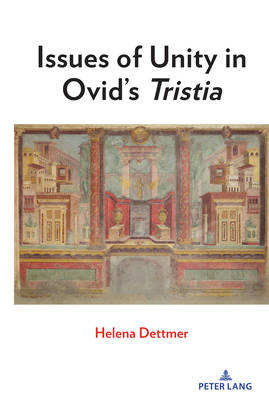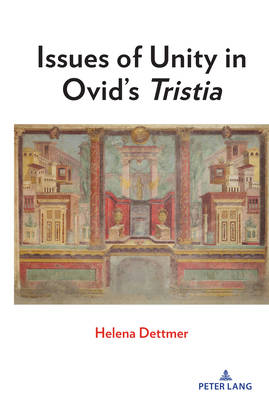
- Afhalen na 1 uur in een winkel met voorraad
- Gratis thuislevering in België vanaf € 30
- Ruim aanbod met 7 miljoen producten
- Afhalen na 1 uur in een winkel met voorraad
- Gratis thuislevering in België vanaf € 30
- Ruim aanbod met 7 miljoen producten
Zoeken
Omschrijving
In his 1995 Teubner edition, J. B. Hall separates Tristia 1.5, 1.9, 3.4, 4.4, 5.2, and 5.7 into two poems. One reviewer of Hall's edition is highly critical of the editor for not justifying the separation of these poems despite the fact the divisions have manuscript support. Because of the sorry state of the textual transmission of Ovid's Tristia, it is sometimes difficult to determine the beginning and end of an individual poem if that poem resumes thematically and verbally where the previous poem concludes. The aim of this study is to show that definitive evidence can be offered to justify division of these six elegies into two poems. Structure combined with theme serves as an analytical tool that defines the beginning and end of the twelve literary pieces under consideration and highlights their artistry. Resolution of the issue of unity enhances our interpretation of the independent poems and our understanding of the complex interplay among poems within each poetry-book. The careful and often brilliant craftsmanship of the poems and of the books in which they appear reaffirms that Ovid's repeated deprecation of the quality of his literary work composed during his period of exile in the Black Sea region is simply a pose to attract sympathy and support from his Roman audience.
Specificaties
Betrokkenen
- Auteur(s):
- Uitgeverij:
Inhoud
- Aantal bladzijden:
- 190
- Taal:
- Engels
Eigenschappen
- Productcode (EAN):
- 9781433177422
- Verschijningsdatum:
- 23/06/2021
- Uitvoering:
- Hardcover
- Formaat:
- Genaaid
- Afmetingen:
- 152 mm x 229 mm
- Gewicht:
- 444 g

Alleen bij Standaard Boekhandel
+ 314 punten op je klantenkaart van Standaard Boekhandel
Beoordelingen
We publiceren alleen reviews die voldoen aan de voorwaarden voor reviews. Bekijk onze voorwaarden voor reviews.








